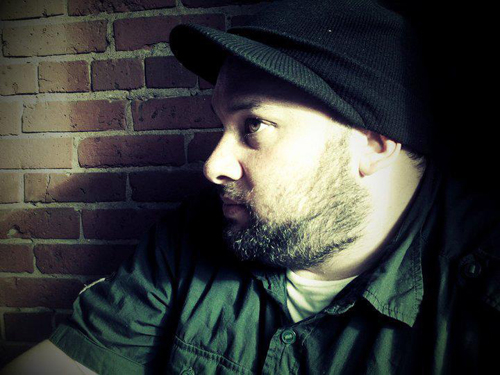By Vivian Nguyen
Northwest Asian Weekly

Kevin Sur, producer of Timber! Music Festival. (Photo by Melodie Knight)
In Hawaii, the concept of family emphasizes the importance of community, cultural ties, and remembering one another. Known as the word “ohana” in the Hawaiian language, it also speaks to a larger sense of community that includes one’s immediate family, as well as extended relatives, friends, and neighbors. <!–more–>
For Kevin Sur, a musician, composer, and owner of local music festivals, ohana drives his business ethos in the music industry.
Sur grew up in California, but spent his youth vacationing in Hawaii during the summers. His Hawaiian father, who is of Chinese and Korean descent, raised Sur with a deep understanding of the culture. Sur grew up speaking Hawaiian pidgin, and carries the idea of ohana close to his heart.
Eight years ago, Sur moved to Seattle. At the time, he was performing and touring with punk bands, and became involved with Seattle’s punk scene. Because mainstream music and record labels eschew punk music, this forces those in the community to rely on one another for support and exposure. Sur finds this camaraderie compelling.
“Punk music is too confrontational of an art for major record labels. They wouldn’t dare touch it,” said Sur. “You just have musicians making art for art’s sake, instead of depending on the record industry for publicity. I learned that you don’t need anyone’s permission to do something. You just do it anyway. And it brings a sense of pride — that people in the punk community take care of their own, whether it’s through creating their own booking agencies, or letting each other sleep at one another’s place.”
Much like ohana, the punk community, too, values inclusivity and looking out for one’s own. Sur sees the shared values between the two cultures, and credits them both for influencing his perception and execution of music festivals.
Over the years, Sur has launched a few micro music festivals in the greater Seattle area, including Doe Bay Fest and Slack Fest. Sur is currently producing Timber! Outdoor Music Festival, a three-day event that celebrates music, nature, and community, against the natural backdrop of the Pacific Northwest. The festival will take place from July 24 through July 26 at Tolt-Macdonald Park in Carnation, Wash. The festival will feature both local and national acts.
In addition to showcasing artists, Timber! hopes to recreate a summer camp vibe throughout the three days. Attendees have the option to stay on adjoining campgrounds and partake in extracurricular activities typically found at a summer camp, such as hiking, kayaking, or guided astronomy walks at night.
“It’s a ‘choose your own adventure’ scenario,” said Sur about Timber!’s activities. “In Hawaii, there’s this emphasis on letting the day take you where you want and doing as you please. There’s no pressure to follow a schedule, and our festivals are a lot like that.”
Sur recalled a childhood anecdote from Hawaii, where it’s common to wear flip-flops, or rubber slippers, given the state’s sunny weather. In preparation to leave his grandma’s house one day, Sur laced up his tennis shoes to leave. His aunt, hovering over him asked, “Why are you getting so dressed up to go out?”
Sur theorizes that his aunt, a Hawaiian local, thought the closed-toe shoes were too formal.
She wanted Sur to feel comfortable enough to wear rubber slippers out because he was in Hawaii — a home for culture, comfort, and family. Sur used the Hawaiian word “kama’aina” to capture his aunt’s reaction. Kama’aina refers to all local Hawaiian residents, regardless of race.
“It’s this idea that everyone is cool and belongs here, as long as they’re local,” said Sur about kama’aina. “It doesn’t matter if they’re native Hawaiian or not. It’s like a sense of pride — the more comfortable you can be in someone’s home, the more you’ll be accepted there.”
“This is the comfort level that I try to replicate in my festivals,” said Sur. “I want people to feel like they’re kama’aina in my ‘home,’ and reach that same level of comfort that I find with my family.”
Sur believes the relaxed and intimate atmosphere of Timber! is what differentiates it from mainstream music festivals that cater to as many people as possible, while micro festivals focus on entertaining a smaller demographic. His team achieves this intimacy by putting a cap on the number of attendees in order to give them space to enjoy the music. There are no premium levels in their ticket sales, and artists come on stage as easily as they exit it with little fanfare. The audience, in turn, feels at home and part of the festival as much as the artists and the staff.
“We had a review last year where they talked about Timber! as not being a big deal and that’s what made us so great,” said Sur. “We just create a true sense of community that is incredibly comfortable and free, and this is what inspires people to congregate and come together here.” (end)
For more information, visit www.timbermusicfest.com or www.cargocollective.com/artisthome.
Vivian Nguyen can be reached at info@nwasianweekly.com.



